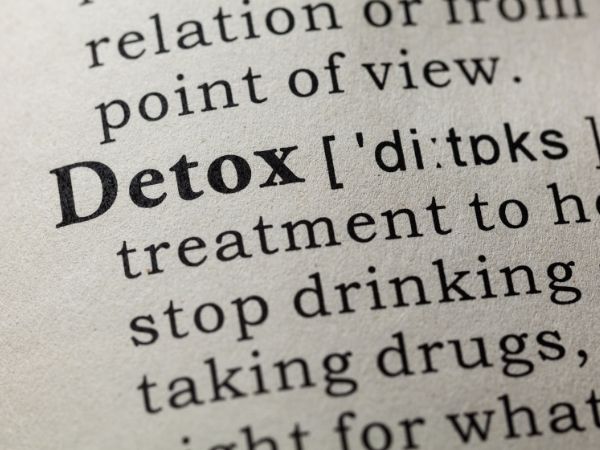Alcohol is a normalized substance in today’s culture. While social drinking is not problematic for everyone, alcohol addiction is certainly a problem. When a person struggles with alcohol addiction, their brain is altered to create severe cravings that change their thoughts, feelings, and actions. However, the situation is not hopeless. Change can happen. Starting with alcohol detox, clients can begin healing the mind and body. They can also build skills that result in long-term wellness. While it is easy to want to rush to the finish line, the first step of the recovery process is alcohol detox.
What Is Alcohol Detox?
When a person is struggling with alcohol addiction, their brain is hijacked. This creates cravings that a person has a hard time controlling. They will experience this as a strong desire for an alcoholic drink. However, the body and brain are also expecting alcohol. Therefore, when a person with an alcohol addiction does not drink, physical symptoms result from abstinence. These withdrawal symptoms can be intense.
During alcohol detox, symptoms of withdrawal will vary for each person. Factors include the length of time a person has been addicted and how long they have abused alcohol. However, it will also vary for each person due to their unique physical characteristics. Commonly withdrawal symptoms include:
- Anxiety
- Depression
- Sleep disruptions and insomnia
- Fatigue
- Tremors, confusion, or hallucinations
- Body aches
- Nausea
- Vomiting
- Dehydration
- Irritability
Some symptoms of alcohol detox are merely uncomfortable. However, others can be very dangerous. Detoxing at a treatment center like Buena Vista Recovery is the best option. Both inpatient and outpatient detoxing programs can be effective. When working with an addiction treatment center, clients can learn the best options to detox safely and start the journey to long-term recovery.
Long-Term Solutions Starting With Alcohol Detox
When a client is struggling with alcohol addiction, they are not able to think clearly. This is due to the changes that have occurred with long-term alcohol abuse. The brain and body need to heal for a client to be able to create any changes. Therefore, alcohol detox is only the first step. The following stages will include making individualized changes, healing from the root cause, and building improved coping skills.
Individualized Changes
Every person’s experience with alcohol addiction and recovery is unique. Additionally, their response to different types of treatment will vary. Therefore, every client must be treated with an individualized approach that helps them to make changes that will stick. Toward this end, Buena Vista Recovery offers individualized care to help clients create long-term solutions for their sobriety.
When a client is treated with individualized care from the start, they have the best chance of completing treatment. As they detox and begin to heal physically, they will transition to other aspects of addiction treatment. Their newly detoxed brain will be more capable of recognizing and acknowledging the changes they need to make to help them stay sober long-term.
Healing From the Root Cause
There are many different causes of addiction. An individual’s environment, trauma, and history can all play a role. A person needs to recognize these root causes. When they do so, they are more likely to address these underlying factors and find new ways to move forward without the use of alcohol.
However, healing from the root cause of their addiction is only possible by starting with alcohol detox. When a person is still using and dependent on alcohol, they continue to feel its effects. This often masks the underlying issue.
When a client finishes detox, these root causes are exposed. Therefore, they have the opportunity to explore the issues. Then, with assistance from a mental health care professional, they can begin to heal from what has been an underlying issue in their struggle with alcohol.
Building Improved Coping Skills
For many, alcohol is a way to cope. It can be a way of coping with certain emotions, stressors, or difficult situations. However, consuming alcohol is a maladaptive coping strategy that leads to physical dependence. To successfully address this habit, an important part of healing from alcohol addiction is learning new and improved coping skills. This helps clients to be able to deal with stress and other challenges without feeling the need to reach for a drink.
When a person is physically dependent on alcohol, they will crave it. The brain is yelling at them to have a drink. The process of detox will lessen this sense of craving. However, after detox, a person may still experience cravings. These cravings are often a result of the previous pattern of drinking.
For example, if a person usually drinks when feeling stressed out, they are likely to experience a craving when they experience stress. After detox, clients know that their physical dependency is healing. Therefore, they can start to piece together why they still desire to drink. This is integral to uncovering patterns and improving coping skills that truly make a difference in a client’s ability to stay sober long-term.
Learning to live a sober life is challenging, but change can happen. Building long-term solutions starts with treatment. While treatment will vary, healing through detox and a combination of therapy can help clients to find individualized solutions that build to long-term changes. At Buena Vista Recovery, alcohol detox is often the first step to healing from alcohol addiction. However, every client is treated as a unique individual and receives the care that is best for them and their specific situation. If you or someone you love is struggling with alcohol addiction, we can help. Call us today at (480) 741-9414 to learn more about our programs for alcohol addiction and the alcohol detox process.




